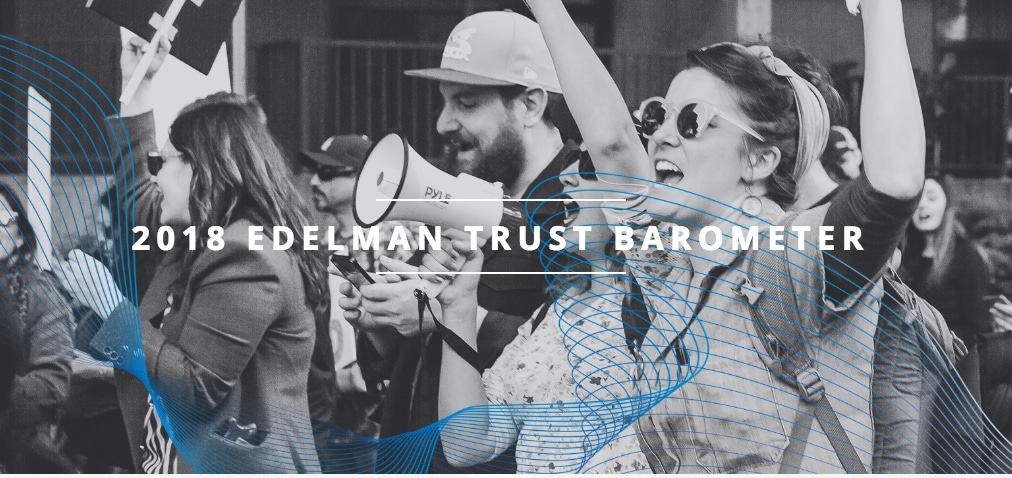News from the World Economic Forum in Davos, Switzerland has been generally positive for the global economy, but one area of gloom and doom endures for the consumer: trust. Edelman Worldwide unveiled the results of its annual Edelman Trust Barometer, and the findings should give pause to leaders of government, business and especially the media.
After what the 2017 survey described as an “implosion of trust,” the 2018 Edelman Trust Barometer showed the U.S. still suffering from the largest-ever- drop in the survey’s history—and the world. Trust fell nine points to 43 among the general public and down 23 points to 45 among the informed public making it the lowest of the 28 countries in the survey. Meanwhile, China topped Trust Index, followed by India, Indonesia, the United Arab Emirates and Singapore.
Countries are moving in totally different directions, said Tonia Ries, executive director of Edelman Square. For the first time, trust in institutions is building in some countries are while spiraling in others.
“You have make sure you’re adapting your strategies to the mindset of the country you’re operating in,” said Ries. This poses a challenge to business leaders, who may have to step in to contribute innovation in some countries and fill in the trust gap in others.
Trust in practically all U.S. institutions has dropped, wiping out the differences between general and informed publics that existed for years. Trust in government spiraled to 33 percent among both general and informed publics, while business, media and NGOs dropped 10 to 20 points.
“America at the moment is at sea,”said chairman Richard Edelman:
The U.S. is seeing a “disconnect” between strong economy and a drop in trust largest than the rest of the world, said Ben Boyd, president, practices and sectors of Edelman.
In this environment, “credentialed experts” have great value, said Boyd. For the first time, this survey found a drop in the credibility of peers.
The media environment has suffered a big loss in trust, according to the study. Some seven in 10 respondents to the survey now worry about disinformation and fake news being used as a weapon.
For the first time media is the least trusted institution globally, distrusted in 22 of the 28 countries surveyed. This is mainly the result of a sharp drop in trust in platforms such as search engines and social media. Nearly two-thirds of respondents say they can’t tell journalism from rumors or whether information came from a news outlet. That mindset led 59% to say they can’t identify true information, 56% said they can’t trust government leaders and 42 percent can’t trust business.
“People are looking for credible information that’s reliable and they don’t know where to look,” said Steve Rubel, Edelman’s chief content strategist. “Rumors can become tru-mors.”
“Relative to other institutions…business is a trusted pillar,” said Stephen Kehoe, Edelman’s global chair, Reputation. There are ways that business can lead in an era of disinformation, he said, but “silence is not an option.”
